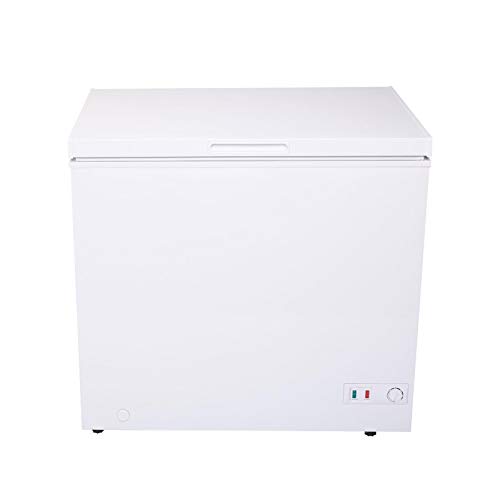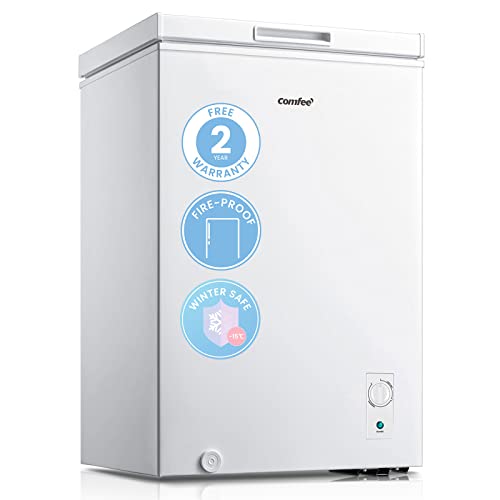7 Things You'd Never Know About Refridgerator
페이지 정보
작성자 Winona 댓글 0건 조회 69회 작성일 24-02-16 05:08본문
 How to Choose a Refrigerator
How to Choose a RefrigeratorRefrigerators are kitchen appliances that are used to keep food and drinks cold. They're used at home and in hotels, offices, and dorm rooms at colleges.
 Some refrigerators have smart features, like cameras and sensors. Some refrigerators have touchscreens that let you watch videos, search for recipes, look up family calendars and shopping lists, or even leave notes for family members.
Some refrigerators have smart features, like cameras and sensors. Some refrigerators have touchscreens that let you watch videos, search for recipes, look up family calendars and shopping lists, or even leave notes for family members.Temperature Control
The proper temperature in the refrigerator keeps foods safe for storage and slows the degradation of many food items due to spoilage. This is particularly important with foods like eggs and milk, which quickly turn rotten at ambient temperatures but remain stable at refrigerator levels. Refrigerators are also widely used to store pharmaceuticals such as vaccines and drugs which lose effectiveness as time passes. Refrigerator monitoring systems are readily available to ensure that the medical facility or laboratory maintains the safety of its cold chain.
A refrigerator has an internal thermal insulator that helps keep its contents cooler than the surrounding environment. The heat pump is used to move warm air from the outside of the refrigerator into an insulated compartment, from which it cools down. The refrigerator has a control system which turns on the cooling system when its internal temperature is higher than a preset threshold. This prevents the growth of bacteria inside the refrigerator.
Each refrigerator zone is designed to serve a distinct purpose. The lower shelves are ideal for storing perishables like fresh meats and vegetables that require the minimum temperatures to preserve their taste and texture. The shelves should be kept clean to allow cool air to circulate in the refrigerator. Keep soft cheeses and cured food items in a separate drawer for deli for the perfect charcuterie tray.
Refrigerators also feature doors made of stainless steel or glass to protect the interior and allow for easy cleaning. Certain refrigerators have a door alarm that can be programmed. It will alert you if the fridge freezer is left open for too long. You can set them to alert multiple people and in increments based on your needs. You can also set them to send temperature graphs via email or text.
Most refrigerators have built-in thermometers however for those that don't, a freestanding appliance thermometer is a cost-effective method of monitoring the temperature of your freezer and fridge freezer deals. It is essential to check the temperature of the fridge and freezer often, particularly when there is an electrical failure or you manually altered the temperature setting. The ideal temperature for both the refrigerator and freezer is 40 degrees Fahrenheit.
Capacity for Storage
The capacity of the refrigerator is a crucial factor in choosing the right model to meet your needs. There are a variety of sizes to choose from that range from small models with a capacity less than 15 cubic feet to larger models with a capacity over 26 cubic feet. To determine which size you need, consider your family's cooking habits and the number of people living in your home. On average, 11 to 13 cubic feet of refrigerator space is enough for two people, while 18 to 22 cubic feet are recommended for three to four people.
Take a look at the depth of the fridge, as well as the space. Some models are more shallow than others, allowing them to fit into small spaces without taking up too much space under the counters. Cabinet-depth fridges are also an alternative. They have a depth similar to the depth of a typical kitchen cabinet front, however the handles may extend a little further. These are a great choice for those with limited counter space. They can also look more modern.
Ask about the refrigerator's energy consumption and the level of noise when you are shopping. There are many manufacturers that provide quieter refrigerators for residential use. Other refrigerators have lower electricity consumption than similar models. You can find the energy usage of a particular model by examining the yellow Energy Guide label. Test the appliance by opening and closing its doors.
The majority of modern refrigerators have the pantry drawer, which is a full-width compartment with separate temperature controls that can be used to store a variety of objects. These drawers can be used to store trays for parties as well as wine and other things at a specific temperature. Depending on the model, these drawers might have pre-programmed settings for wines and deli meats as well as soft drinks.
Energy Efficiency
Refrigerators consume a lot energy. Therefore, it is important to choose a energy-efficient refrigerator. As time has passed, refrigerators have become increasingly energy-efficient. The insulation, motors, and magnetic door seals on a modern refrigerator use less energy than a refrigerator that is similar to its size. You can lower the power consumption of your refrigerator even more by purchasing one that is energy efficient. A refrigerator that is Energy Star rated will consume much less energy than a comparable model ten years old or older.
It is crucial to think about energy efficiency for those who have limited access to electricity grids. Refrigerators are often among the most costly appliances for off-grid households and their large energy consumption means they require huge solar home systems (SHS) which aren't affordable for many families making less than $2 per day. A refrigerator's annual energy consumption is therefore a crucial element in determining whether it is cost-effective for consumers to purchase and maintain (PATH and WHO 2013; McCarney et al, 2012).
We'll begin by explaining the basic refrigeration process. A refrigerator cools by pushing liquid refrigerant through a sealed unit beginning as a liquid, and then goes through a compressor which compresses the liquid to form an vapor. This vapor is then pumped into coils that are located on the outside of the fridge, where it draws heat from the fridge freezers (Going Here), then cooling down before turning back into a liquid. This process repeats repeatedly to keep food cool as the vapor circulates through the coils.
Refrigerators are among the most expensive appliances that consumers who are not connected to the grid can purchase, but improving their energy efficiency will make them more affordable. A refrigerator powered by a smaller SHS will be powered by less energy. This will lower total cost of the system. Energy savings vary depending on the dimensions, design and other features of the refrigerator. Ice-makers and water dispensers through the door, for instance can be costly however they can also increase the energy consumption of the refrigerator, which increases the amount of SHS required to run it.
Maintenance
Regular maintenance and inspections can greatly improve the lifespan of your refrigerator. Examine the condenser, the ice maker, and the defrost drain. Also, look for seals on the door. Cleaning and replacing water filter is also vital. Doing these simple tasks can help prolong the life of your fridge as well as reduce your energy costs.
Cleaning the interior of your refrigerator regularly is the simplest and most effective way to maintain it. This includes throwing away old food items and wiping the shelves, fridge freezers crispers, walls, and the inside of the doors of your refrigerator and freezer. This will help prevent unpleasant odors and lower the risk of food-borne illnesses. A refrigerator thermometer is a good option to monitor the temperature of your fridge regularly. A refrigerator that isn't properly maintained may have temperature fluctuations, which can lead to food spoilage as well as a higher electricity bill.
The condenser coils of your refrigerator should be cleaned at least at least twice a year. This will remove any dirt, grime, hair or other debris that has built up. The coils are located at the bottom or rear of your appliance. They are basically radiator-like components that help remove heat from your refrigerator. These coils can't dissipate heat as efficiently when they're dirty. Your refrigerator will consume more energy to run.
Check your refrigerator's seal that is designed to create an airtight seal between your fridge and the ductwork in your home. It is essential to ensure that your fridge's contents remain cold. However with time, the seal could be worn down by sticky and greasy fingerprints. syrups. Clean the seal of your fridge with a an abrasive towel to keep it in good condition.
It is also a good idea to clean the drip tray, which is located generally beneath the compressor unit of the refrigerator. This pan is used to collect water from the defrost cycle and should be wiped down regularly to avoid the buildup of odors and mold.
댓글목록
등록된 댓글이 없습니다.

